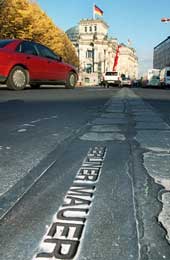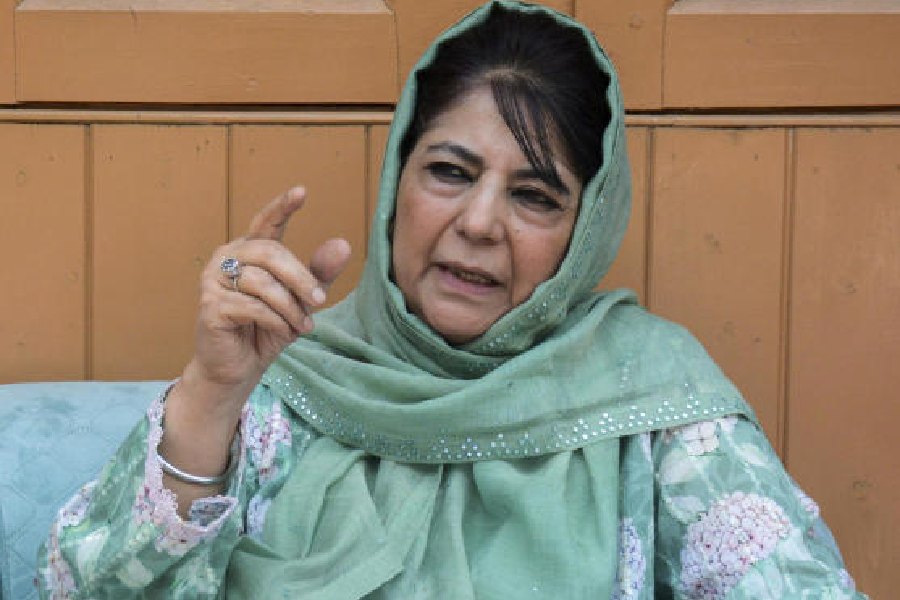|
|
In literature, as in life, timing is all. Published on the eve of the Cold War, George Orwell’s Nineteen Eighty Four became a worldwide best-seller. Decades before Orwell, the Russian writer, Zamyatin, had written a powerful novel about totalitarianism called We. But when this appeared, there were no signs of Hitler or Stalin, no looming threats to civilization. And so Zamyatin’s book sunk, unmourned.
An Indian book that was somewhat unfortunate in its timing was Sarvepalli Gopal’s biography of Jawaharlal Nehru. Its three volumes were published between 1975 and 1984, that is, precisely when Nehru’s daughter Indira Gandhi was working overtime at demolishing the foundations of Indian democracy. Intellectuals put off or harrassed by Mrs Gandhi were in no mood to carefully read a book believed to be in praise of her father. And so the word went round — this is a reverential, uncritical, book, a book by a courtier about a monarch he worshipped. As a student in Calcutta then, I swallowed the word myself.
Not long ago, I read the three volumes of Gopal’s biography for the first time. It did have its faults, though these were not those indicated by my teachers of twenty years ago. I was especially struck by the lack of attention to Nehru’s personal and emotional life. Thus, his relationship with his wife is not fleshed out in any detail. His relationships with other women are not even commented upon. Edwina Mountbatten rates one mention in a thousand pages of text. Padmaja Naidu is not even so lucky.
A more telling flaw, in what was intended to be chiefly a political biography, is the prejudiced treatment of those placed in positions of rivalry to Nehru. Thus Subhas Bose, who in the Thirties was an alternate lodestar for the patriotic-minded young, is called “impatient, wilful and endlessly ambitious”. Bose’s book, The Indian Struggle, says Gopal, “lacks the intellectual grace and stature of Jawaharlal’s (Autobiography). The ideas are jejune and the prose without flavour.” As for the man himself, he “was a born loser”.
Bose, fortunately for Nehru perhaps, died in 1945. After independence, Nehru’s chief “rival”, in a political sense, was Rajendra Prasad. For twelve years, president and prime minister had an uneasy relationship. The Constitution envisaged a more active role for the president than Nehru was prepared to allow. As Rajendra Prasad’s secretary, C.S. Venkatachar, has commented, “Outwardly there was deference to the President’s function; inwardly, they were ignored.” Venkatachar, and others, saw Prasad as a thoughtful if somewhat conservative patriot, who could have moderated some of the prime minister’s more extreme views. But Gopal believes that if Nehru did not more often consult the president, it was because it wasn’t worth it. Rajendra Prasad to him was “the meek follower of Gandhi, but untouched in any real sense by the sprit of Gandhi’s teachings”; a “loyal party man but of inferior intellectual quality and with a social outlook which belonged to the eighteenth century”. At another place he says that the president was “prominent in the ranks of medievalism”.
Consider, finally, Gopal’s treatment of C. Rajagopalachari. Rajaji worked closely with Nehru in the early years after independence, but then the two drifted apart. Later, they even became political adversaries when the Tamil started the Swatantra Party and mounted a telling critique of Nehru’s economic policy. The Australian diplomat, Walter Crocker, once remarked that Rajaji was at least “the intellectual and moral equal of Nehru”. But Gopal will have none of this. For him Rajaji was “blinded by personal chagrin”. “Deliberate perversity was a major facet of his intellectual arrogance”, while “inconsistency was to Rajago-pa-lachari always a cause of satisfaction”.
This, then, is a biography that suppresses the personal life, and displays a sometimes unreasoning hostility to its subject’s colleagues and critics. Set against these flaws are some very considerable virtues. For one, it is an outcome of solid research. Gopal ploughed through a mountain of letters and government documents, and also read widely in the contemporary periodical literature. For another, it is artfully and even elegantly written. For a third, it is as much a portrait of the times as of the individual. This aspect of Gopal’s book is particularly valuable, for there are no credible histories of India after independence. Other historians treat August 15, 1947 as a sort of lakshman rekha: they always stay on the colonial side of the divide. Gopal’s book, however, is richly informative about the economic and foreign policies followed by the government of free India.
Last and certainly not the least among the book’s virtues is that it is by no means a hagiography. While sympathetic to Nehru, it does not elevate him to icon-like status. Gopal makes it clear that Mahatma Gandhi was much the greater man. Unlike the Mahatma, “Nehru was not capable of deep or original thought, and he knew it”. Again, “unlike Gandhi, who was a strong man, imparting strength to others, Nehru drew sustenance from popular idolatry”. Gopal criticizes Nehru’s lack of judgment, pointing out that he had a “weakness for flamboyant buccaneers”, such as Pratap Singh Kairon and Krishna Menon, who did him (and India) poorly. That a stenographer named M.O. Matthai became so powerful was in part the fault of the boss himself: “an illiterate upstart had succeeded in making Nehru the victim of his own isolation and had revived in Delhi the atmosphere of a decadent court.”
Most significantly, Gopal does not shirk from the criticism of Nehru the administrator and policymaker. If “Nehru seems a prophet frustrated and with his hopes unfulfilled”, he writes, then “the cause lies in the failures to follow up the courageous introduction of adult suffrage with a speedy enforcement of land distribution and tenancy reforms, a proper emphasis on education, a revision of the administrative apparatus and control of the population. Had these steps been taken, democracy would have been accompanied by basic changes in society and the Fifties would not appear more and more of a faded golden age”.
Nehru, we complain, could have done more. But he did a huge amount as it is. With Patel, Rajaji, Ambedkar and others, he united India peacably and gave it a democratic Constitution. These others contributed, sometimes mightily, but as the head of government for a full seventeen years, Nehru contributed most of all. He was, in Gopal’s words, “the national appeaser, enclosing various conflicting elements in a broad pattern of agreement”. It was his ability to transcend the confines of region, religion, caste and language, his ability to reach out to all of India, that made Gandhi designate him his successor above the other, more ethnically bounded, contenders. As the historian, Robert D. King, has written, Nehru “was an extremely intelligent man whose education and experience had elevated him to a height from which he could judge his country’s problems without the regional prejudices and small-mindedness many of his fellow leaders brought with them when they assumed power in the wake of the British withdrawal”.
King also observes how “fortunate India was to have had Jawaharlal Nehru as its guide and preceptor during the years of the creation of independent India”. Perhaps it takes a foreigner to be so discerningly generous. We Indians are more judgmental: for, as Gopal himself puts it, Nehru’s “very achievements demand that he be judged by standards which one would not apply to the ordinary run of prime ministers; and disappointment stems from the force of our expectations”. But, with Nehru and Mrs Gandhi both long dead, the time may have come for us to view both his achievements and failures with the necessary detachment. Sarvepalli Gopal’s still readable, still unequalled, three-volume biography would be a very good place to start.











